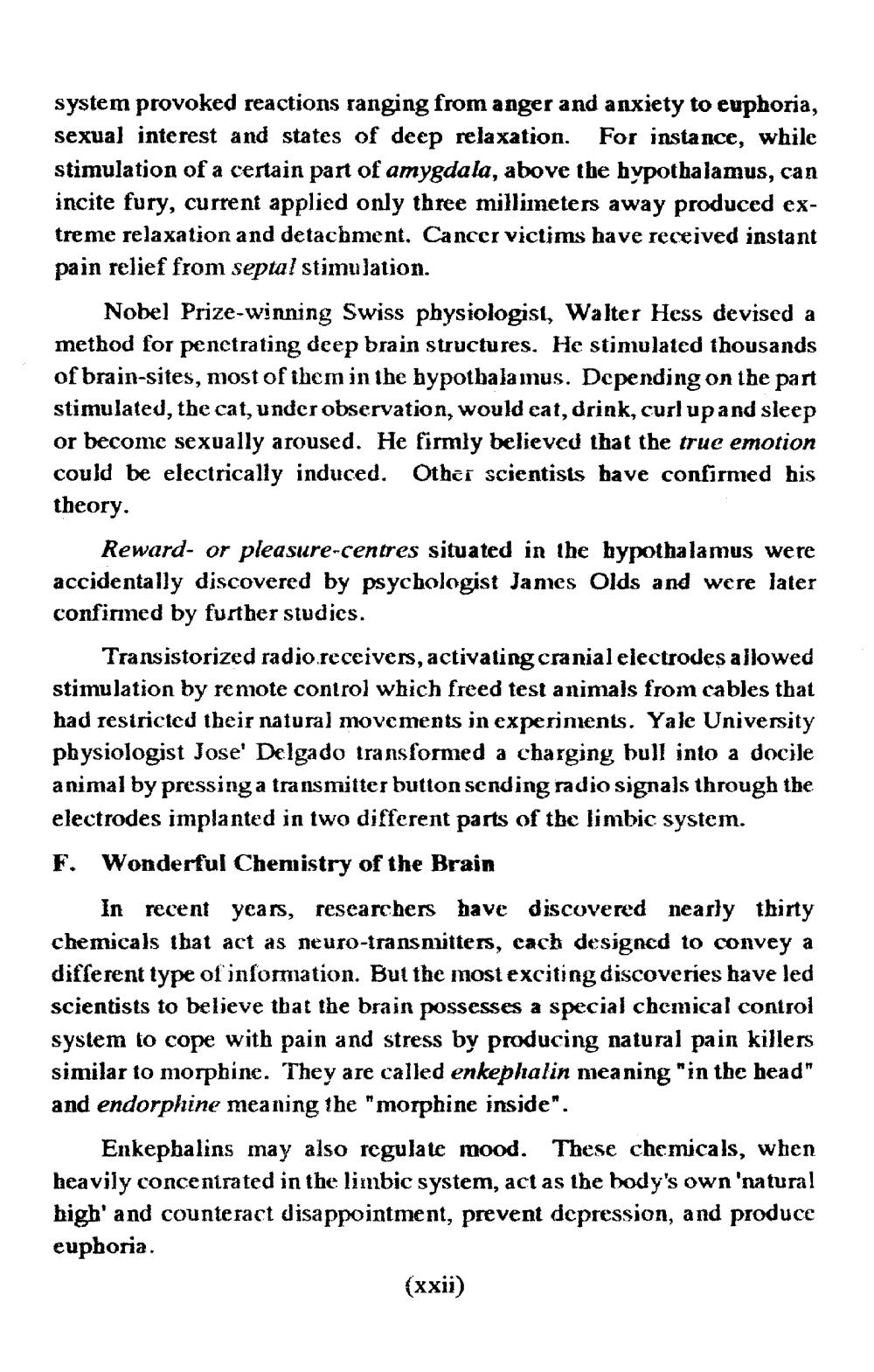________________
system provoked reactions ranging from anger and anxiety to euphoria, sexual interest and states of deep relaxation. For instance, while stimulation of a certain part of amygdala, above the hypothalamus, can incite fury, current applied only three millimeters away produced extreme relaxation and detachment. Cancer victims have received instant pain relief from septal stimulation.
Nobel Prize-winning Swiss physiologist, Walter Hess devised a method for penetrating deep brain structures. He stimulated thousands of brain-sites, most of them in the hypothalamus. Depending on the part stimulated, the cat, under observation, would cat, drink, curl up and sleep or become sexually aroused. He firmly believed that the true emotion could be electrically induced. Other scientists have confirmed his theory.
Reward- or pleasure-centres situated in the hypothalamus were accidentally discovered by psychologist James Olds and were later confirmed by further studies.
Transistorized radio.receivers, activating cranial electrodes allowed stimulation by remote control which freed test animals from cables that had restricted their natural movements in experiments. Yale University physiologist Jose' Delgado transformed a charging bull into a docile animal by pressing a transmitter button sending radio signals through the electrodes implanted in two different parts of the limbic system. F. Wonderful Chemistry of the Brain
In recent years, rescarchers have discovered nearly thirty chemicals that act as neuro-transmitters, cach designed to convey a different type of information. But the most exciting discoveries have led scientists to believe that the brain possesses a special chemical control system to cope with pain and stress by producing natural pain killers similar to morphine. They are called enkephalin meaning "in the head" and endorphine meaning the "morphine inside".
Enkephalins may also regulate mood. These chemicals, when heavily concentrated in the limbic system, act as the body's own 'natural high' and counteract disappointment, prevent depression, and produce euphoria.
(xxii)




